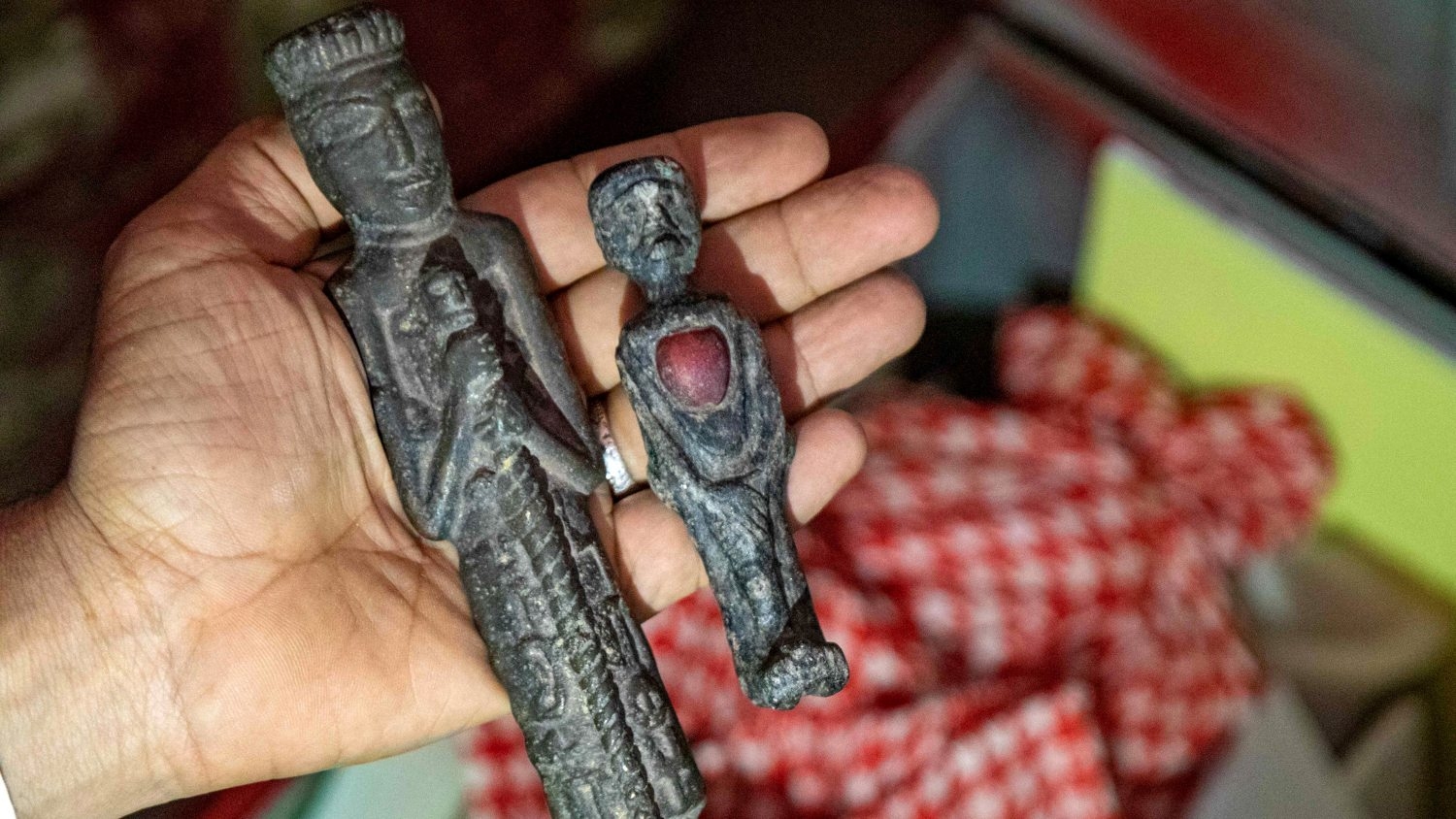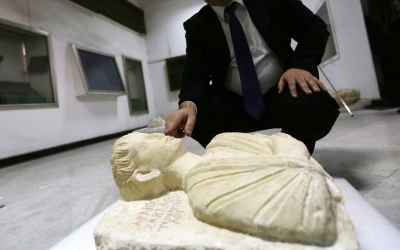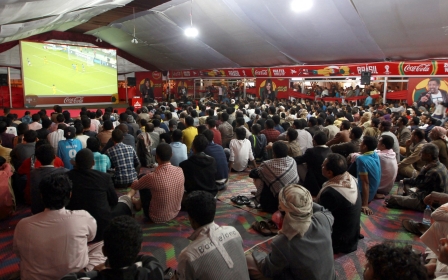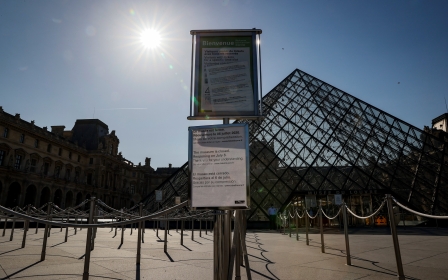Researchers fear UK sale of artefacts could include items looted from Yemen

An auction in the UK has sparked concerns over the sale of artefacts that researchers say resemble the types of items looted from Yemen, after the auction house did not label their place of origin.
The issue has shone light on the stolen antiquities market, which has continued to thrive despite international efforts to curb sales.
On Tuesday, London's TimeLine Auctions began the online bidding of thousands of antiquities from all around the world. It will run until 3 December.
In the weeks leading up to the auction, Yemeni antiquities researcher Abdullah Mohsen posted on Facebook that a few of the artefacts to be auctioned off resemble artefacts that are from Yemen, though the exact provenance of the items is unknown to the researchers. It is unclear whether or not the auction house knows the precise origins of the items.
'It's very difficult to be sure of the very provenance of these objects that are present in different areas in Yemen'
- Jeremie Schiettecatte, archaeologist at the CNRS, Paris
One item, a set of gold jewellery beads, sold for 715 pounds ($850), while a bronze camel figurine was sold for 975 pounds ($1160). A statue of a camel rider is also being auctioned and is estimated to be valued at £400-600 ($480-720).
New MEE newsletter: Jerusalem Dispatch
Sign up to get the latest insights and analysis on Israel-Palestine, alongside Turkey Unpacked and other MEE newsletters
Middle East Eye reached out to TimeLine Auctions for comment but did not receive a response.
Jeremie Schiettecatte, an archaeologist at the French National Centre for Scientific Research in Paris, said he couldn't confirm if the items were indeed stolen, but they resembled ones he had personally seen and knew had been looted from areas of Yemen.
"Nevertheless, this is something that I have been able to see in private collections, not the same item but similar items in a collection, which was held in Yemen," he told MEE.
He said the items had been mostly comprised of stolen antiques, and "among these, there were some jewellery, almost similar or resembling those on sale in London".
Schiettecatte noted that the artefacts on sale this week are unusual compared to the usual types of auctioned items coming from Yemen.
"This is not the kind of item we usually see on sale coming from Yemen. Most of the recent artefacts are mostly inscriptions on stone or bronze plates. It's not so common to have these artefacts that we can see here," Schiettecatte told MEE.
He added that one of the main issues when it comes to trying to identify stolen items is that auction houses do not provide the item's provenance, or its exact origin, both in terms of time and place.
"It's very difficult to be sure of the very provenance of these objects that are present in different areas in Yemen. We can find these kinds of artefacts in different areas. It's very difficult to discern whether it comes from a looted area or any other unlooted area."
History of looted items
Manel Chibane, legal programme manager for the Clooney Foundation for Justice's Docket initiative, told MEE that she was not surprised by the concerns.
In their latest report on stolen antiquities, which found that hundreds of thousands of artefacts have been stolen from war-torn countries in the Middle East in the past decade, Chibane said that TimeLines was not named. However, they had been named in a report regarding the trade out of Libya.
"In a study back from 2011, [researchers] spotted four portraits from Cyrene that had been traded through or by this auction house."
In May 2020, the TimeLines auction house was involved in the sale of a stolen artefact, this one being a Sumerian temple plaque from around 2400 BC. It was eventually returned to Iraq.
That same year, The Guardian reported that a sculpture stolen from the National Museum of Afghanistan had appeared on the auction house's website.
There is "this feeling of impunity" that auction houses and dealers have, Chibane said.
Stolen antiquities trade fuels conflict
In terms of Yemen, Chibane noted that the ongoing war in the country has led to an increase in the smuggling of looted antiquities.
"Basically you have regular reports of arrests of individuals being involved in the smuggling of antiquities from Yemen," she said.
"Yemen is a conflict area, there is an international conflict happening there and there are several armed groups there, and they've contributed to the looting of antiquities."
'Pillaging qualifies as a war crime'
- Manel Chibane, the Clooney Foundation
Chibane said it was difficult to determine the origin of the current items for sale on TimeLines because it says they are from a 1980s collection, well before the Clooney Foundation's Docket initiative was tracking the sales of stolen items.
"When it comes to Yemen, we researched and we saw that there was pillaging happening in Yemen since 2011 and that feeds conflict."
According to the Docket initiative, nearly 150,000 items were looted from Yemen. According to Unesco, the illicit trade in cultural goods - of which antiquities trafficking is a part - is worth $10bn a year. A portion of these profits is known to be used to finance conflicts and global terrorism.
Chibane said that her work at the Clooney Foundation is focused on using strategic litigation to stop the trade of stolen goods, rather than simply calling for more regulation.
"And that's why we think that going to the international crime aspect and the litigation aspect is a good deterrent for those dealers who should realise what their role is in this," she said.
"Pillaging qualifies as a war crime, so that's where the dealer operating in the various places in London or Paris would probably be deterred if they're being prosecuted for those sorts of legal grounds."
This article is available in French on Middle East Eye French edition.
Middle East Eye delivers independent and unrivalled coverage and analysis of the Middle East, North Africa and beyond. To learn more about republishing this content and the associated fees, please fill out this form. More about MEE can be found here.





